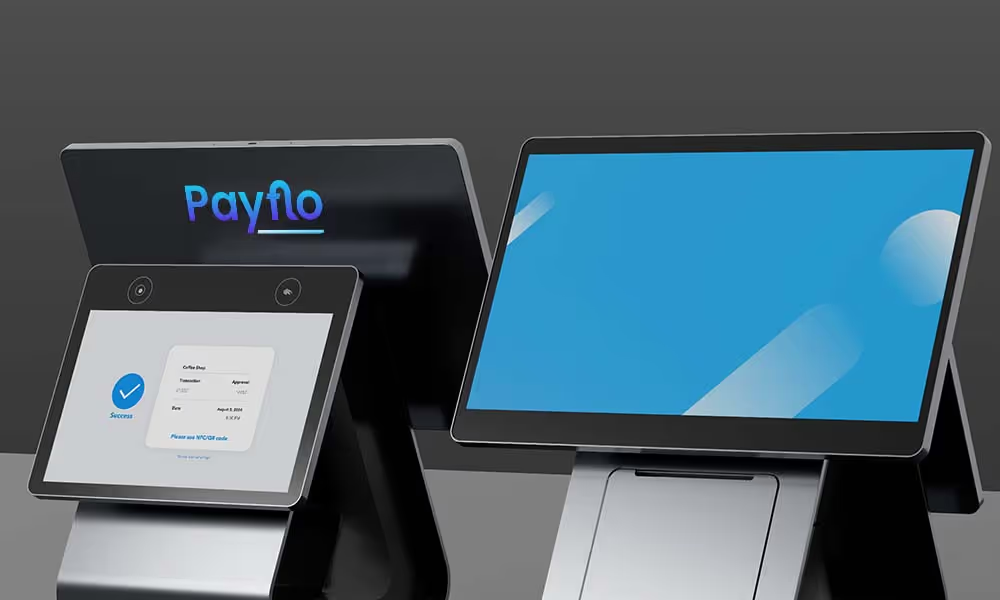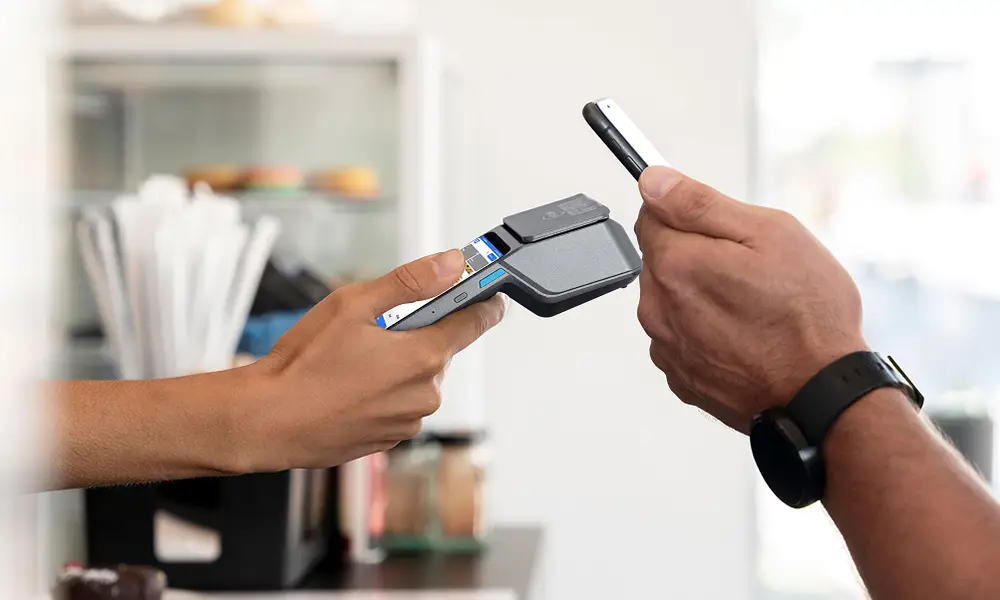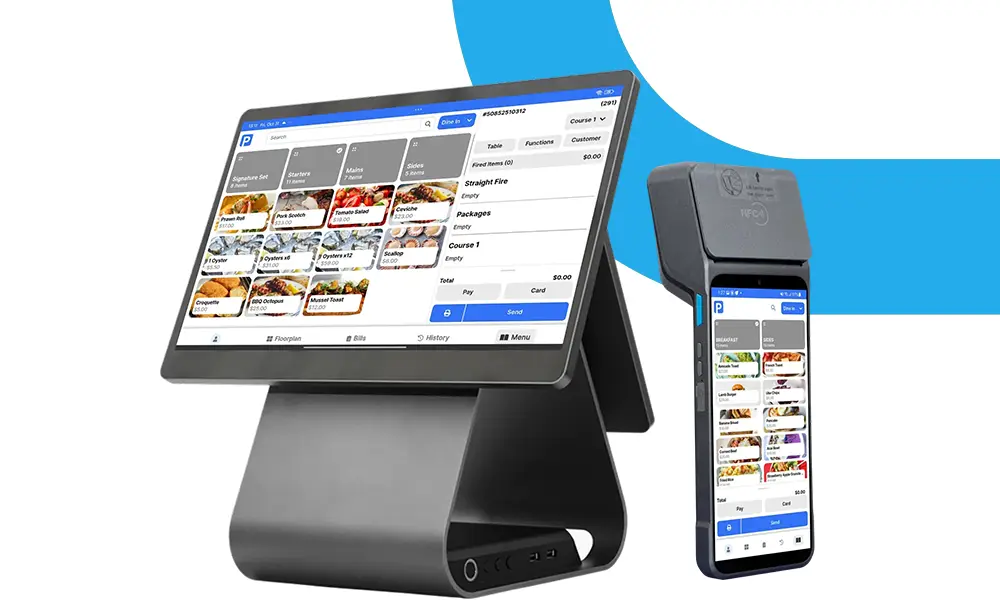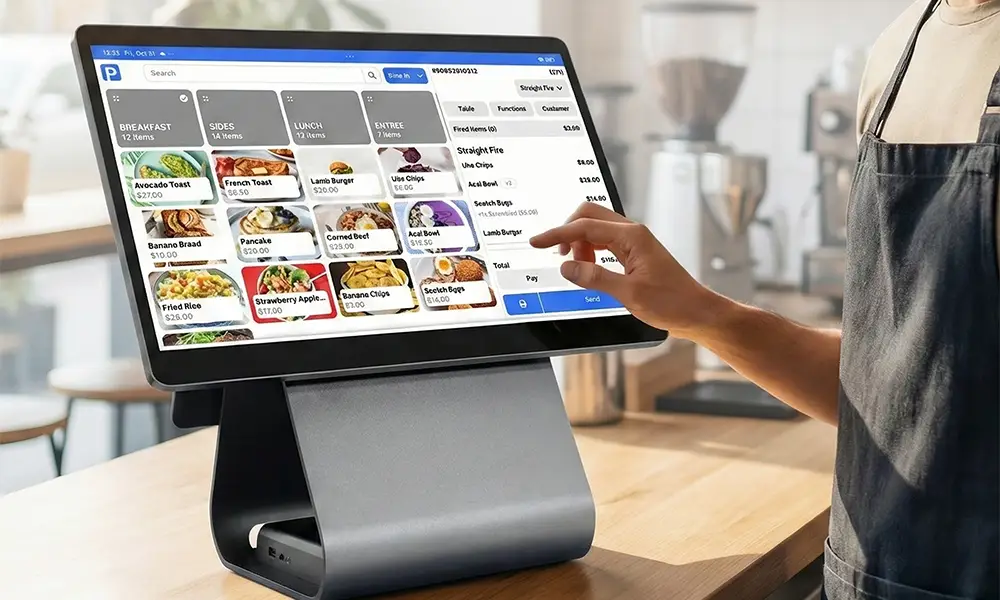Ever stood at the checkout, watching customers grow impatient because your payment system was too slow or glitchy? In a world where customer experience can make or break a business, a reliable point of sale terminal is no longer just “nice to have”—it’s essential.
But here’s the big question: with so many POS options out there, how do you choose the best one for your unique business needs? From retail stores to restaurants, each industry has its own set of demands when it comes to processing payments. If you’re feeling lost in a sea of tech jargon and endless features, you’re in the right place.
Let’s dig into what makes a POS terminal effective, reliable, and perfectly suited to your business, whether you're a small café or a bustling retail chain.
1. What is a Point of Sale Terminal?
Before diving into the specifics, let’s cover the basics. A point of sale (POS) terminal is the technology that allows businesses to process sales transactions, typically through card payments, cash handling, and sometimes even online payments. Today’s POS systems do a lot more than just complete a sale—they help manage inventory, gather sales data, and improve customer relationships.
Core Functions of a POS Terminal
A modern POS terminal typically offers:
- Payment Processing: Credit, debit, and mobile payment support.
- Sales Tracking: Real-time data on transactions and customer preferences.
- Inventory Management: Automatic updates to inventory with every sale.
- Reporting & Analytics: Insights into sales trends, helping with decision-making.
Whether it’s managing stock, tracking customer trends, or speeding up the checkout process, a POS terminal should be adaptable, secure, and easy to use for both staff and customers.
2. Key Factors to Consider When Choosing a POS Terminal
Selecting the best POS terminal involves balancing features with your specific business needs. Here are the key factors to weigh in on:
1. Business Type
Different types of businesses require different POS capabilities. For instance:
- Retail: Needs inventory management and a barcode scanner.
- Hospitality: Requires table mapping and tipping options.
- Service-Based: Benefits from appointment scheduling and invoice capabilities.
2. Ease of Use
A user-friendly interface is crucial. Staff should be able to operate the POS terminal easily to ensure smooth transactions and minimise training time.
3. Hardware & Software Compatibility
Make sure the POS terminal is compatible with existing hardware and software. For example, does it work with your preferred payment processor, barcode scanner, or receipt printer?
4. Security Features
With data breaches on the rise, secure payment processing is vital. Look for POS systems that offer end-to-end encryption and compliance with security standards like PCI-DSS.
5. Customer Support
Customer support can be a lifeline in the event of a technical hiccup. Ensure the provider offers reliable support and quick issue resolution.
3. The Top POS Terminals to Consider in Australia
Australia’s POS market is competitive, offering a variety of options for different types of businesses. Here are some of the leading POS terminals:
1. Square POS
Square offers a compact, user-friendly system suitable for small businesses. It’s known for:
- No upfront costs: Only pay per transaction.
- Mobile compatibility: Ideal for businesses on the go.
- Inventory management: Tracks stock levels automatically.
2. Vend POS
Designed for retail, Vend POS provides:
- Cloud-based software: Allows for remote access to data.
- Customisable features: Tailor the interface to suit your business.
- Multi-store support: Perfect for growing retail brands.
3. Clover POS
Popular among restaurants and service-based businesses, Clover offers:
- Integrated loyalty programs: Encourages repeat customers.
- Order management: Great for handling high volumes of orders.
- Flexible hardware options: From handheld devices to full terminals.
4. Lightspeed POS
Known for versatility, Lightspeed POS serves both retail and hospitality with:
- Advanced analytics: Track sales, inventory, and employee performance.
- E-commerce integration: Syncs with online stores.
- Comprehensive support: Offers training, troubleshooting, and installation help.
4. Must-Have Features in a POS Terminal
When selecting a POS terminal, certain features are practically non-negotiable:
- Fast Checkout: A slow POS terminal can frustrate customers, especially during peak hours.
- Multiple Payment Options: Accept credit, debit, mobile wallets, and even Afterpay options.
- Inventory Tracking: Essential for retail, this feature helps avoid stockouts and overstocking.
- Employee Management: Tracking staff hours and productivity can streamline payroll.
- Customer Relationship Management (CRM): Stores customer data for better engagement and loyalty programs.
5. Choosing the Right POS for Different Business Sizes
Different business sizes demand different POS capabilities. Here’s a quick breakdown:
For Small Businesses
Small businesses need affordability and ease of use. POS systems like Square are often ideal because they’re simple, mobile-friendly, and don’t require hefty setup fees.
For Medium-Sized Businesses
Mid-sized businesses might look at Vend or Lightspeed, which provide features like inventory tracking, customer analytics, and multi-location management. These systems help growing businesses keep tabs on all locations while providing a cohesive experience.
For Large Businesses
Larger enterprises often require a highly customisable POS solution with robust analytics. Clover and Lightspeed both offer solutions that can manage inventory across multiple locations, handle detailed reporting, and support a high volume of transactions.
6. Tips for Implementing a New POS Terminal Smoothly
Switching or installing a new POS terminal doesn’t have to disrupt your operations. Here are some tips to make the transition easier:
- Train Your Staff: Invest time in training to avoid issues later on.
- Check Compatibility: Ensure new software works with existing systems (like printers and cash drawers).
- Back Up Data: Always have a backup in place to avoid data loss.
- Run a Test Phase: Set up a soft launch to iron out any technical issues before fully switching over.
Wrapping Up: Ready to Choose the Best Point of Sale Terminal for Your Business?
Choosing the best point of sale terminal is a pivotal step for any business owner looking to streamline operations and provide an exceptional customer experience.
From simple mobile POS options to fully integrated systems, the ideal solution depends on your business’s specific needs, budget, and future growth plans.
Need help deciding? Book a free demo to explore the best POS options tailored to your business. Get started today!
FAQs about Choosing a Point of Sale Terminal
1. How much does a POS terminal cost?
Costs vary depending on features, hardware, and software needs. Expect prices to range from $50 for basic setups to $2,000 or more for advanced systems with customisable features.
2. Can I integrate my POS terminal with other software?
Yes, many modern POS terminals integrate with accounting software, inventory management tools, and CRMs to streamline operations.
3. What security features should a POS terminal have?
Look for PCI-DSS compliance, end-to-end encryption, and two-factor authentication to protect sensitive customer data.
4. How often should I update my POS software?
Regular updates help improve security and add new features. Many POS providers offer automatic updates to keep your system secure and up-to-date.
5. Are mobile POS terminals a good choice?
Absolutely! Mobile POS terminals are ideal for businesses that need flexibility, such as food trucks, pop-up shops, and event vendors.


%201.svg)
%201.svg)





.png)
.png)
